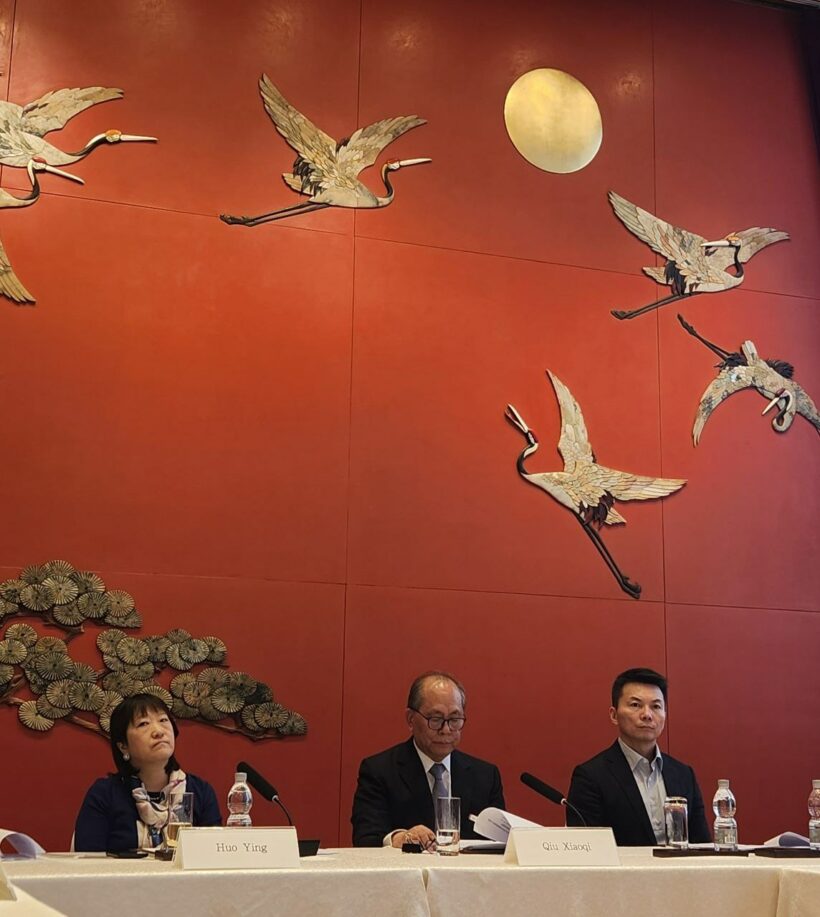Five years after the Cuban Missile Crisis (1962), Latin America and the Caribbean became the first nuclear-weapon-free zone, committing the nuclear powers to non-aggression and non-nuclear threats in the region and promoting global denuclearization.
Yes, many countries have signed the Treaty on the Prohibition of Nuclear Weapons, but the major nuclear powers have not.
Yesterday, Qiu Xiaoqi, the Chinese government’s special representative for Latin American affairs, answered Pressenza’s questions on the nuclear issue at a press conference in the Diplomatic Room for the Latin American press.
Mr Qiu replied: “In January 2022, the leaders of the five nuclear weapon states issued a joint statement to prevent nuclear conflict, stressing that there are no winners and that such a war cannot be unleashed.
President Xi Jingping has also repeatedly stressed this: Nuclear war cannot be unleashed and nuclear weapons cannot be used.
Since 1964, when China conducted the first successful atomic bomb test, China’s position on this issue has been consistent and clear: China will not be the first to use nuclear weapons. Nor will it threaten non-nuclear countries or regions with nuclear weapons.
China’s nuclear arsenal has long been maintained at the same level to ensure its own security. We will never engage in a nuclear arms race.
We believe that the international community should work together to push for the appropriate resolution of nuclear hot-spot issues, both diplomatically and politically. China is committed to a vision of common, cooperative, comprehensive and sustainable security. At the same time, we want to respond to security challenges and risks, both conventional and non-conventional, with a win-win and win-win mentality, so as to defuse warlike conflicts in various regions and bring more stability to this turbulent and troubled era.
So much for the answers Pressenza was interested in on the nuclear issue.






